Extension of transition period specifically for the health sector
Giving opinions on the draft Law on Vocational Education (amended), National Assembly deputies emphasized that this is a law that has a direct impact on the career path of young people, especially those after secondary school and those in difficult circumstances who are in dire need of an open way to continue studying and have a stable career.
On the other hand, developing high-quality human resources is being identified as a vital strategy to enhance Vietnam's international integration. Therefore, the draft Law on Vocational Education (amended) submitted to the National Assembly at the 10th Session is expected to overcome many difficulties, contributing effectively to labor training to meet market needs.
Concerned about Article 41 of the draft Law on the roadmap to stop enrolling intermediate students after junior high school until July 1, 2030, National Assembly Delegate Dinh Thi Ngoc Dung (Hai Phong) said that in many localities, especially rural, mountainous, and economically disadvantaged areas, many students cannot continue studying at high school. Therefore, intermediate education after junior high school is not only an option but the only way for students to continue studying and soon have a job.
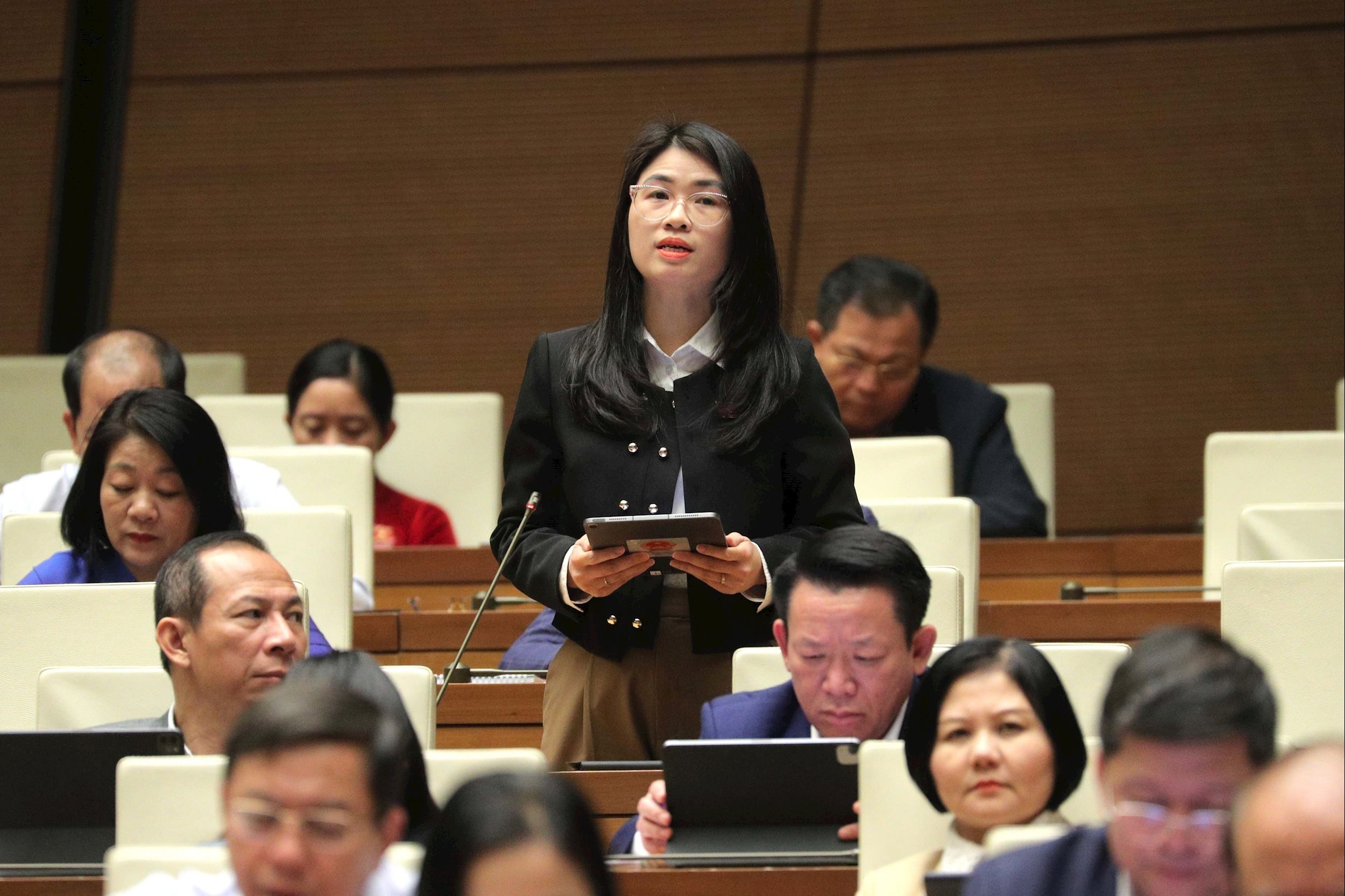
“If we close this path too quickly when the conditions for transitioning to the new model are not really equal, it will greatly reduce the opportunities for students in disadvantaged areas to access vocational education, causing many students to drop out of school altogether instead of switching to another model,” said delegate Dinh Thi Ngoc Dung.
Emphasizing that policies must be consistent with actual conditions, delegate Dinh Thi Ngoc Dung suggested that there should be a more flexible roadmap based on the development level of each region, population characteristics and human resource needs of each locality instead of applying a "hard" nationwide timeline.
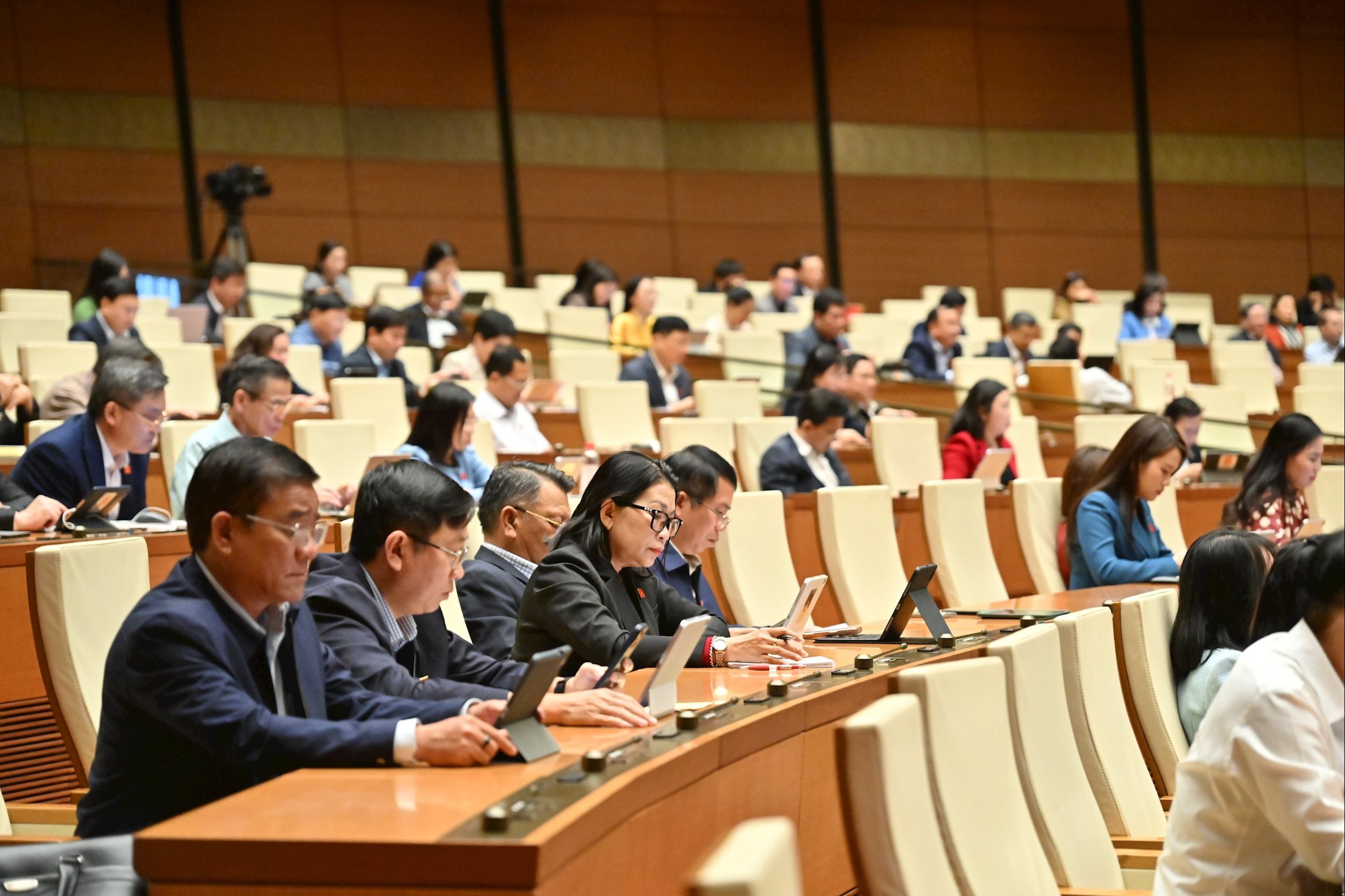
In particular, for professions in the health sector, the draft Law also stipulates an immediate stop to secondary school enrollment after junior high school when the Law comes into effect. In practice, in recent years, the primary health care workforce at many commune health stations has been heavily dependent on secondary school-level staff. If this is stopped immediately without adequate replacement resources, it will easily lead to a shortage of frontline health care personnel, which is responsible for providing primary health care for the people.
With such analysis, delegate Dinh Thi Ngoc Dung suggested that there should be a more complete impact assessment, a separate transition period extension for the health sector, and a full impact assessment before widespread application.
Supplementing policies for elderly learners who want to participate in production labor
Article 25 of the draft Law currently regulates policies for learners.
National Assembly Delegate Pham Thi Hong Diem (Vinh Long) expressed her high agreement with points a, b, c, Clause 1, Article 25.
Accordingly, students enjoy policies prescribed by the Law on Education, especially boarding policies for students who are ethnic minorities, people from poor households, near-poor households, people with disabilities and vulnerable groups.
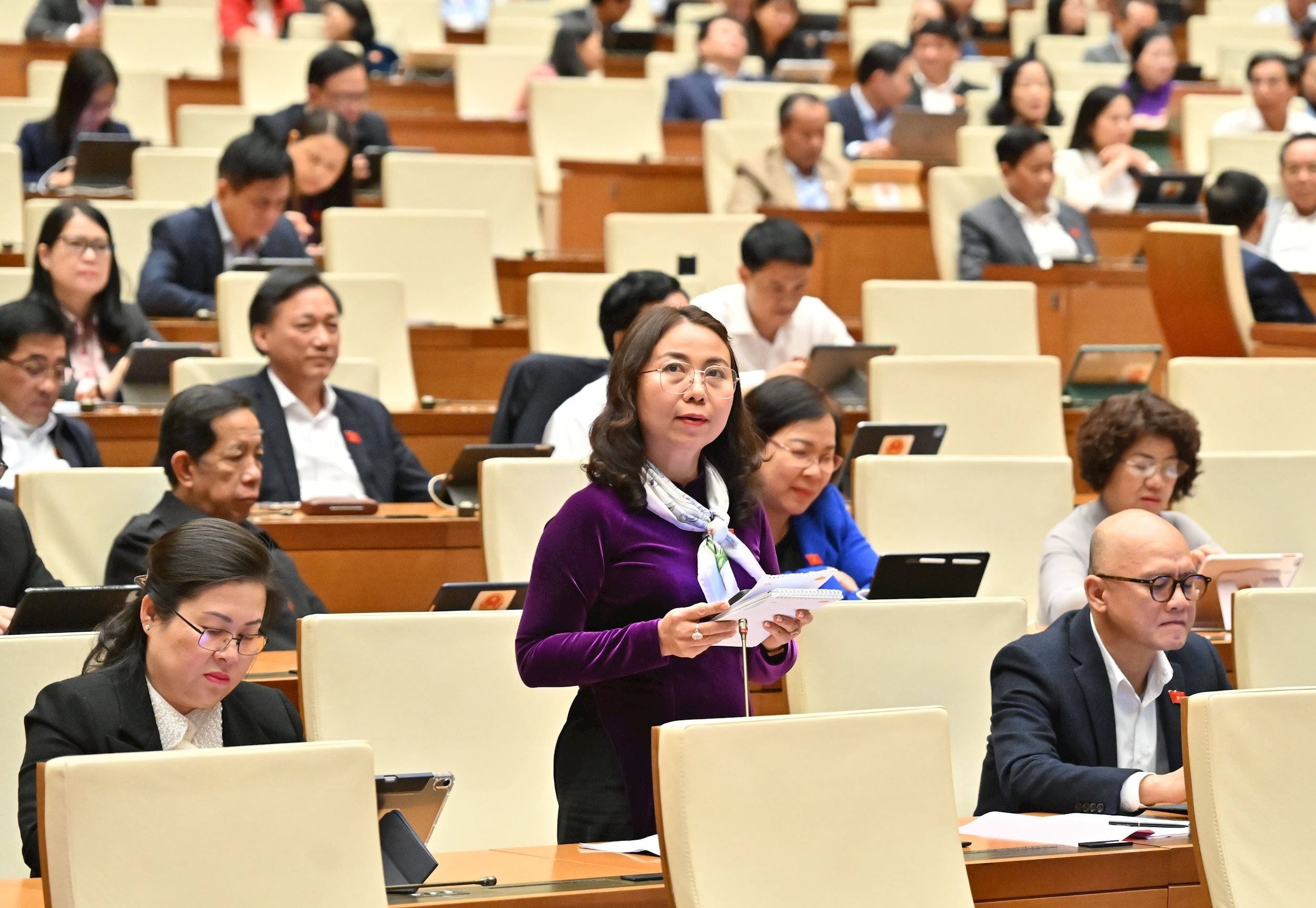
Delegate Pham Thi Hong Diem also pointed out that, along with limited labor quality, population aging creates many challenges in economic development, especially as the working-age population structure decreases and occupational structure changes. Population aging will also cause a shortage of additional labor in the future, reducing labor productivity and hindering economic growth.
This requires appropriate investment so that older workers will be a source of high-quality labor, with more experience, skills and more commitment to work, leading to higher labor productivity. If people lose their jobs at an old age without a degree or training certificate, it will be a barrier for them in the current socio-economic development conditions.
Therefore, delegate Pham Thi Hong Diem proposed to supplement policies for learners who are elderly and healthy and want to participate in production labor. This will also be a high-quality resource, creating income for themselves, their families and society.
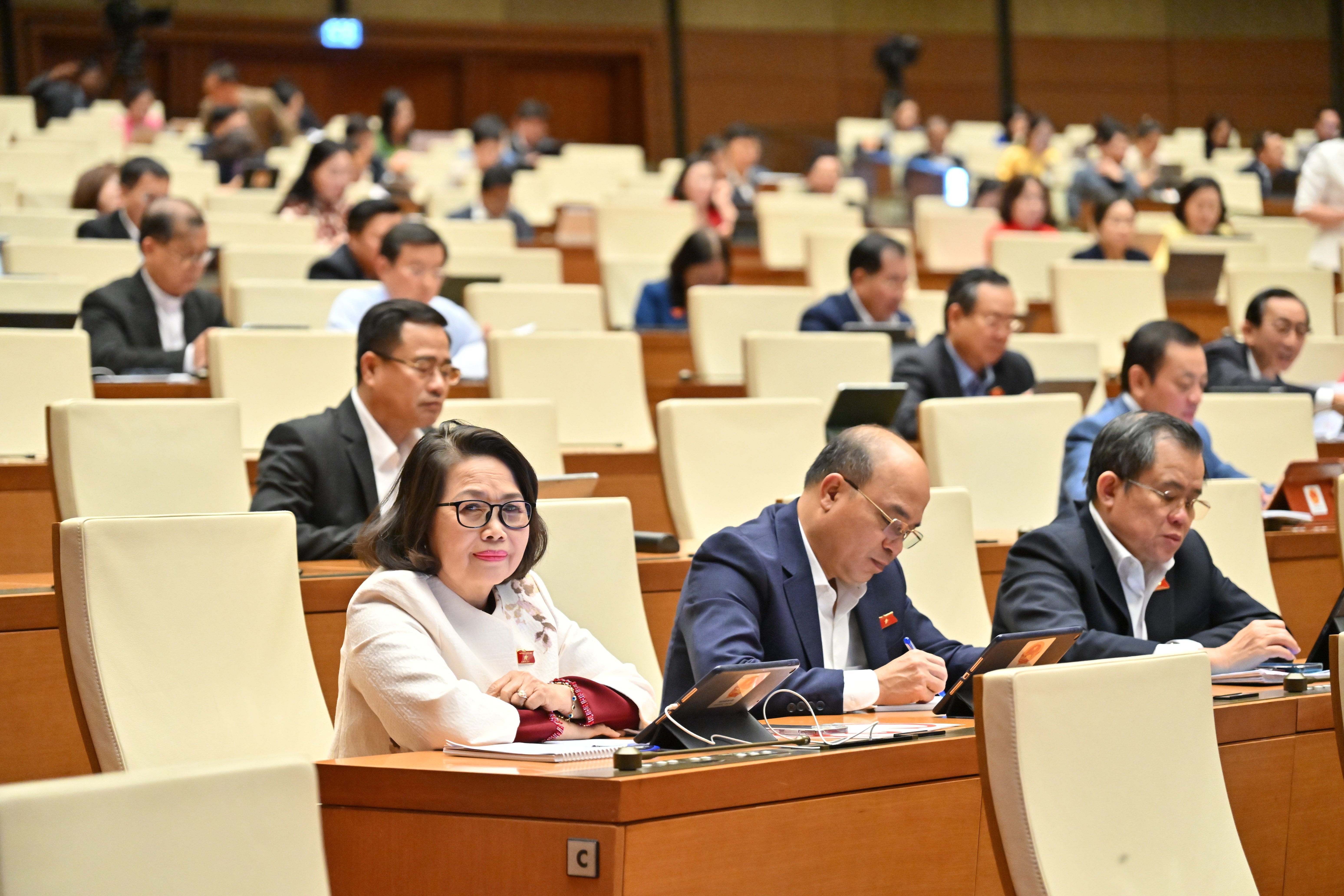
Clause 3, Article 19 of the draft Law stipulates the recognition and conversion of learning outcomes and accumulated professional competencies of learners to create conditions for continuous learning and lifelong learning.
Specifically, recognition of learning outcomes and professional competence is carried out in the following cases: learning outcomes accumulated from a training program or certificate program under an intermediate or college level training program; professional competence of learners accumulated through vocational skills certificates or other forms suitable to the content and objectives of the corresponding modules and subjects in the training program.
According to National Assembly Deputy Vuong Quoc Thang (Quang Nam), this is the basis for developing standards, regulations, and tools to serve the recognition of knowledge, skills, and professional capacity of learners and workers accumulated during the labor and self-study process. This policy will open up opportunities for workers to study and practice to have their professional skills recognized, promote the building of a learning society and lifelong learning; reduce the burden on educational and training institutions while helping to save national resources.
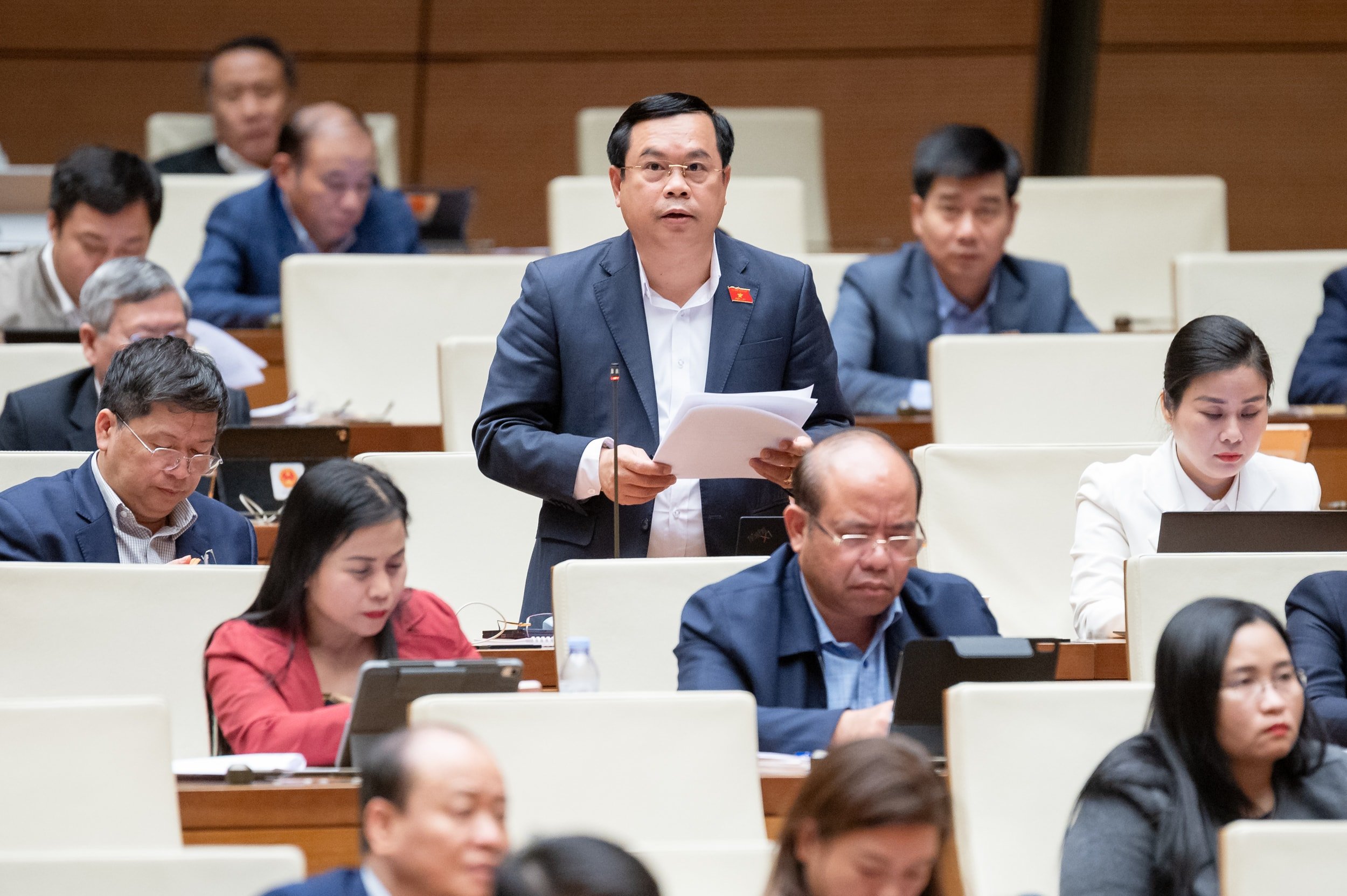
However, delegate Vuong Quoc Thang suggested that it is necessary to continue reviewing the provisions in Clause 4, Article 3, which stipulates "not aiming to grant diplomas or certificates" for short-term training programs. This not only does not promote the standardization of training content but also does not create conditions for learners to accumulate bases and evidence to participate in the recognition and conversion of accumulated learning outcomes and professional competencies as stated in Clause 3, Article 19.
In the context of current scientific and technological development, delegate Vuong Quoc Thang said that the system of diplomas, vocational certificates and the recognition of workers' qualifications and skills also need to be scientifically designed, suitable for the practical context of learners formed through self-study, self-training and recognition of informal learning results to be exempted when participating in training programs according to the National Qualifications Framework such as intermediate, college, university...
Source: https://daibieunhandan.vn/quoc-hoi-thao-luan-ve-du-an-luat-giao-duc-nghe-nghiep-sua-doi-chinh-sach-phai-nhat-quan-voi-dieu-kien-thuc-te-10396401.html





![[Photo] President Luong Cuong receives President of the Senate of the Czech Republic Milos Vystrcil](/_next/image?url=https%3A%2F%2Fvphoto.vietnam.vn%2Fthumb%2F1200x675%2Fvietnam%2Fresource%2FIMAGE%2F2025%2F11%2F20%2F1763629737266_ndo_br_1-jpg.webp&w=3840&q=75)
![[Photo] National Assembly Chairman Tran Thanh Man holds talks with South Korean National Assembly Chairman Woo Won Shik](/_next/image?url=https%3A%2F%2Fvphoto.vietnam.vn%2Fthumb%2F1200x675%2Fvietnam%2Fresource%2FIMAGE%2F2025%2F11%2F20%2F1763629724919_hq-5175-jpg.webp&w=3840&q=75)
![[Photo] Lam Dong: Panoramic view of Lien Khuong waterfall rolling like never before](/_next/image?url=https%3A%2F%2Fvphoto.vietnam.vn%2Fthumb%2F1200x675%2Fvietnam%2Fresource%2FIMAGE%2F2025%2F11%2F20%2F1763633331783_lk7-jpg.webp&w=3840&q=75)


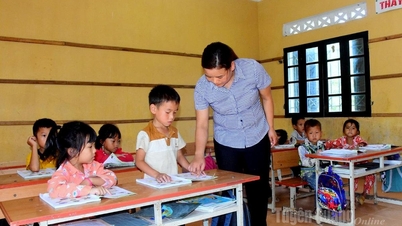





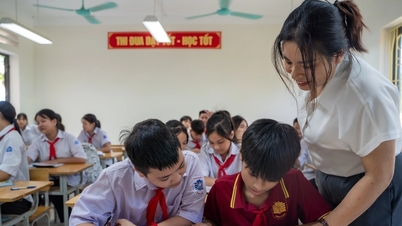


















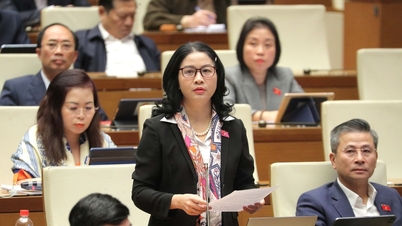
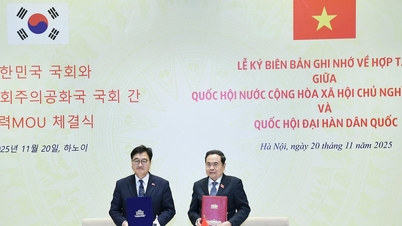
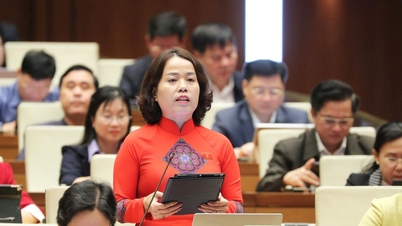











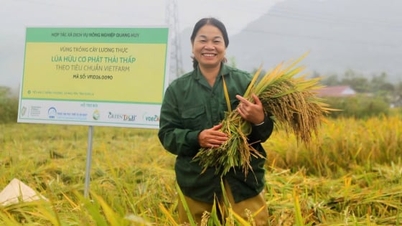





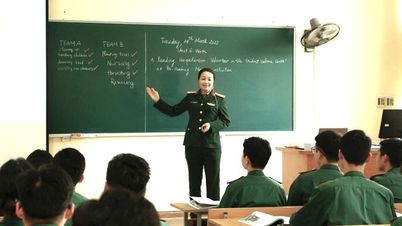


















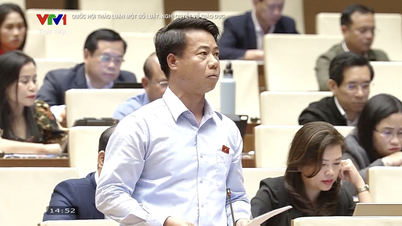










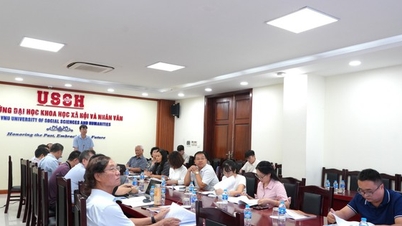
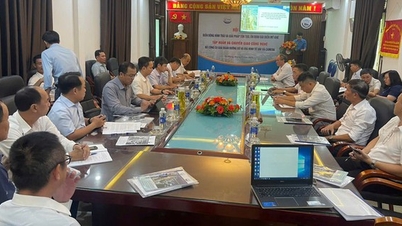

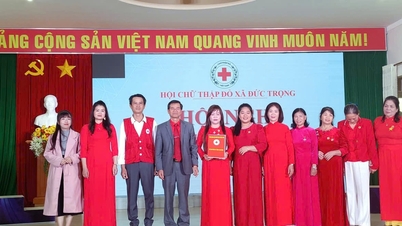

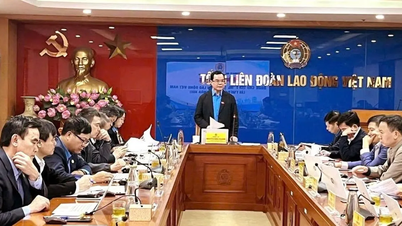





















Comment (0)